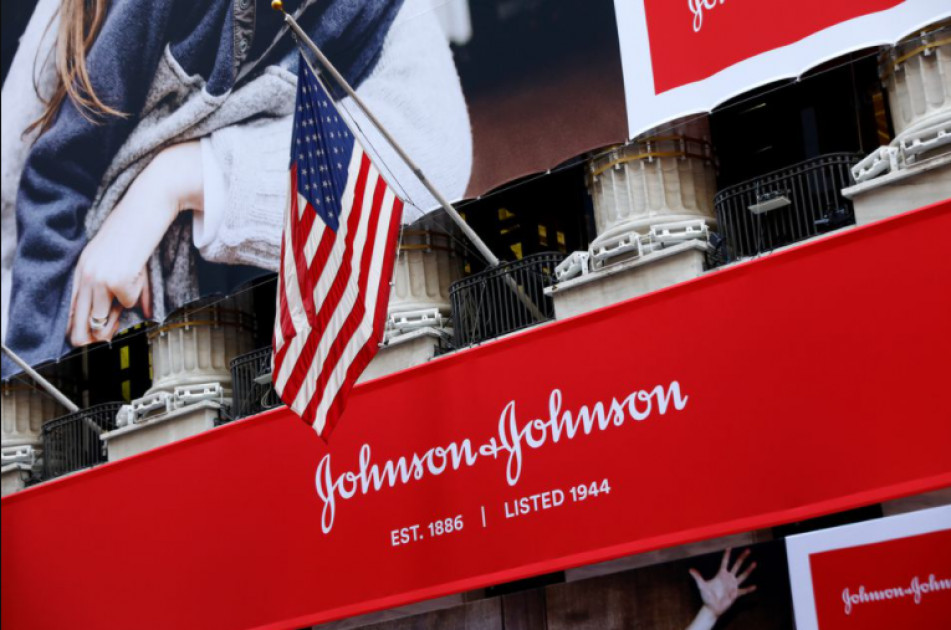Johnson & Johnson to split into two to focus on drugs

The U.S. flag is seen over the company logo for Johnson & Johnson to celebrate the 75th anniversary of the company's listing at the New York Stock Exchange (NYSE) in New York, U.S., September 17, 2019. REUTERS/Brendan McDermid/File Photo
Johnson
& Johnson plans to spin off its consumer health division that sells
Listerine and Baby Powder to focus on pharmaceuticals and medical devices in
the biggest shake-up in the U.S. company's 135-year history.
This
has particularly been the case in healthcare, where the slow-and-steady
business of selling products such as shampoos and moisturizers has increasingly
diverged from the high-risk, high-reward work of developing and marketing
blockbuster drugs.
"The
new Johnson & Johnson and the new consumer health company would each be
able to more effectively allocate resources to deliver for patients and
consumers, drive growth and unlock significant value," said Joaquin Duato,
who is expected to become chief executive officer in January.
The company said it was aiming to complete the separation in 18 to
24 months, sending its shares up 4% before the bell.
Johnson
& Johnson's Band-Aids and cough remedies have long been the face of the
company.
Now its pharmaceutical and medical equipment business, which makes
cancer treatments, vaccines and surgical tools, is on track for nearly $80
billion in sales this year, way ahead of the $15 billion its consumer products
are expected to bring in.
The higher growth outlook comes despite disappointing sales of
Johnson & Johnson's COVID-19 vaccine following a string of production setbacks and fierce competition from
rivals such Pfizer and Moderna.
Johnson & Johnson's consumer division has faced a spate of
lawsuits alleging its talcum powder for babies causes cancer, which the company
has denied.
It has created a subsidiary to manage the multi-billion-dollar
claims and Chief Executive Alex Gorsky said on Friday the decision to separate
the consumer division had nothing to do with the lawsuits. It stopped selling
the baby powder in the United States and Canada last year.
The medical device and pharmaceutical division has also faced
lawsuits for some of its products.
Johnson & Johnson said last month it had settled most of the
lawsuits it faced from thousands of men who claimed its anti-psychotic drug
Risperdal caused them to develop excessive breast tissue. The company has
recorded $800 million in expenses in connection with the agreement.
Jeff Jonas, asset manager at GAMCO Investors, said a spin-off
would allow the company to be more acquisitive.
"Ultimately, when they do finish the consumer spin-off,
they'll probably raise a little bit of cash and put a little bit of debt on the
consumer business, which would give them more money to do deals," he said.
Want to send us a story? SMS to 25170 or WhatsApp 0743570000 or Submit on Citizen Digital or email wananchi@royalmedia.co.ke
Comments
No comments yet.


Leave a Comment